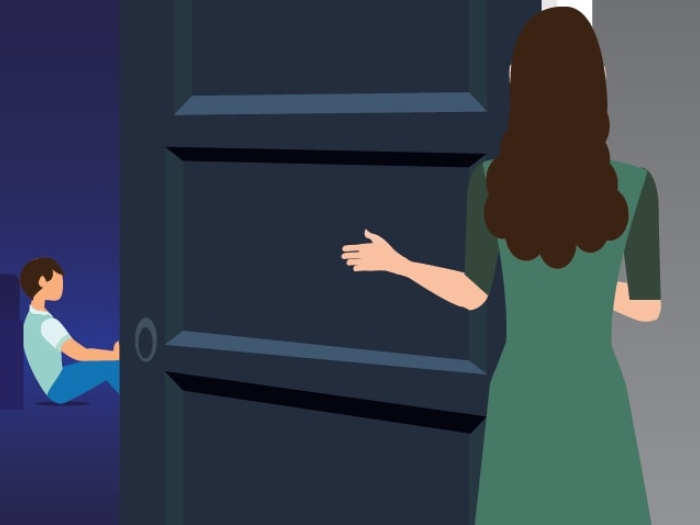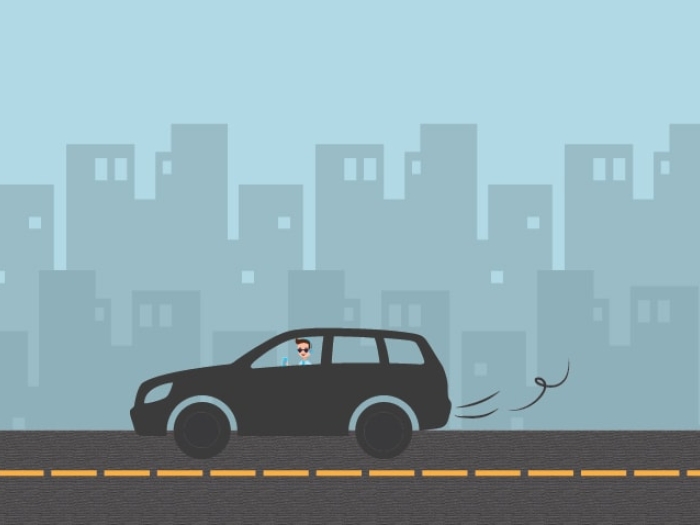If your child accidentally swallows a battery — of any size — it likely warrants a trip to the emergency room. Here’s what parents need to know.
7:00 AM
Author |

Used to power remote controls, watches, musical greeting cards, hearing aids and even many toys, those ubiquitous — and seemingly benign — lithium batteries can be toxic in tiny hands.
SEE ALSO: 10 Ways to Stop a Bloody Nose
That's because the button-sized devices, if swallowed, could become lodged in the esophagus and cause a potentially dangerous injury due to a chemical reaction between the esophagus lining and the battery's remaining current.
The result: a caustic burn whose severity can escalate just minutes after a battery enters the body.
"The longer you leave it in the esophagus, the more damage there is," says Meghan Arnold, M.D., a pediatric surgeon at University of Michigan C.S. Mott Children's Hospital. "A (swallowed) coin can wait until the morning to come out; a button battery requires action the moment you find out about it."
Doctors typically use an endoscope and a grasper tool to carefully remove the item while the patient is under general anesthesia. Depending on the situation, the procedure could be performed by a pediatric surgeon, gastroenterologist or otolaryngologist. Most cases require follow-up care and examination after discharge to ensure healing.
The hazards of such batteries — prevalent enough that a Button Battery Task Force was formed to address the problem — often go unnoticed by parents who arrive at the hospital in shock that the household item could inflict so much harm.
"The general population is not aware of how dangerous these batteries are," says George Zacur, M.D., a Mott pediatric gastroenterologist who co-authored a 2015 report citing that button batteries have become deadlier because of an increased diameter and a change to lithium cells.
He recalls a recent case in which a young child swallowed an old battery from a garage door opener after the parents changed it out.
Although little time had passed before arriving at the hospital, resulting throat damage was substantial.
Growing concern
Physicians at Mott handle about five to 10 button battery ingestions each year, says Zacur, who hasn't seen a noticeable rise in related admissions but noted the growing inclusion of the batteries in everyday products has "made them more of a problem."
SEE ALSO: Hands-Only CPR: The Michigan Way
Nationwide, more than 3,500 such incidents are reported to poison control centers annually in the United States, according to the task force, which maintains that the actual number of episodes is likely higher.
The task force also reports that cases involving serious injury or death quadrupled between 2006 and 2010 compared to the five years prior.
At UMHS, most of the battery ingestion patients are 5 years of age or younger.
"Kids are inquisitive; like most things they encounter, they'll put (batteries) in their mouths," says Arnold. "They are small, they're shiny."
Kids are inquisitive; like most things they encounter, they'll put (batteries) in their mouths.Meghan Arnold, M.D.
Most dangerous, the task force notes, are button batteries that measure 20 millimeters in width — about the size of a nickel — and are more prone to get caught in a child's esophagus.
Less worrisome are smaller batteries that end up in the stomach where they'll probably pass in a bowel movement. A chest X-ray can help determine an appropriate course of action.
Avoiding injury
Families should take proactive steps to keep all batteries, no matter the size, out of reach.
That means only buying toys that have battery pockets or pouches secured with a screw. Store remote controls, hearing aids and other such items on higher shelves or surfaces (and, of course, any loose replacement batteries as well).
Still, says Arnold, "as long as batteries exist they're going to be a problem."
Which is why parents need to know the signs of trouble.
Most accidental ingestions aren't witnessed by an adult, according to the National Capital Poison Center, which offers treatment guidelines and a list of symptoms to look for if a battery is assumed to have been swallowed.
Among them: drooling, coughing, vomiting, chest pain, inability to swallow and refusal to eat.
Meanwhile, discussions about choking and poison hazards of all types — including dishwasher and laundry detergent "pods," toy pieces such as Legos and monetary coins — should be had.
"We need to educate our families," Zacur says, who notes that anything that can fit through a toilet paper tube shouldn't be given to small children. "Hopefully, there is more awareness going around."

Explore a variety of health care news & stories by visiting the Health Lab home page for more articles.

Department of Communication at Michigan Medicine
Want top health & research news weekly? Sign up for Health Lab’s newsletters today!





